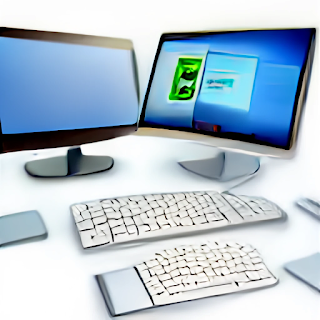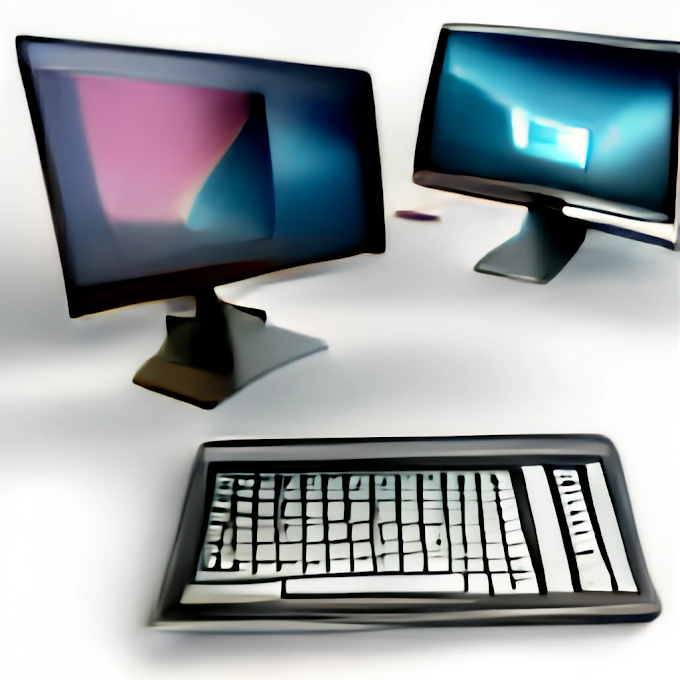Characteristics that define a computer:
Speed: Computers can perform calculations and execute instructions at a very high speed, allowing them to process large amounts of data in a short amount of time.
Memory: Computers have a large amount of storage space, called memory, which allows them to store and retrieve data and instructions.
Accuracy: Computers are very accurate and precise in their calculations and operations.
Versatility: Computers can be programmed to perform a wide range of tasks and can be used in a variety of fields, from scientific research to entertainment.
Automatic operation: Once a computer is programmed, it can perform tasks automatically, without the need for human intervention.
Connectivity: Computers can be connected to other devices, such as printers and scanners, and can also be connected to the internet, allowing them to access and exchange information with other computers and devices around the world.
Types of computers.png)
Personal computers (PCs): These are computers that are designed for personal use, such as for home or office work. They come in a variety of form factors, including desktop computers, which are designed to be used on a desk, and laptop computers, which are portable and can be carried around.
Servers: These are computers that are used to provide services to other computers or devices on a network. They are often more powerful and have more memory and storage than personal computers.
Mainframe computers: These are very large and powerful computers that are used by organizations to process and store large amounts of data. They are often used by banks, government agencies, and other large businesses.
Supercomputers: These are the most powerful computers in the world and are used for tasks that require a lot of processing power, such as weather forecasting, scientific research, and simulations.
Embedded computers: These are computers that are built into other devices, such as cars, smartphones, and appliances. They are used to control and monitor the operation of the device.
Cloud computers: These are computers that are accessed over the internet and are not located in a specific physical location. Users can access cloud computing resources, such as storage and processing power, on a pay-per-use basis.
Applications in various fields.png)
Business: Computers are used in a variety of business applications, such as word processing, spreadsheet creation, and data management. They are also used for communication, such as email and videoconferencing.
Education: Computers are widely used in education, both for students and teachers. They are used for research, learning management systems, and online course delivery.
Entertainment: Computers are used for a variety of entertainment purposes, such as playing games, watching movies and TV shows, and listening to music.
Science and research: Computers are used to analyze data, create simulations, and perform complex calculations in fields such as physics, chemistry, and biology.
Medicine: Computers are used in medicine for tasks such as storing and analyzing patient records, diagnosing medical conditions, and planning surgeries.
Government: Computers are used in government agencies for tasks such as managing public records, analyzing data, and communicating with citizens.
Transportation: Computers are used in the transportation industry for tasks such as scheduling and routing, tracking vehicles, and managing inventory.
Manufacturing: Computers are used in manufacturing to control and monitor production processes, manage supply chains, and design products.
Art and design: Computers are used in art and design for tasks such as creating digital art, modeling and rendering 3D objects, and creating animations.



0 Comments